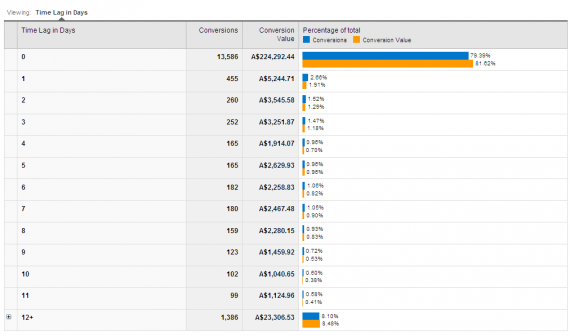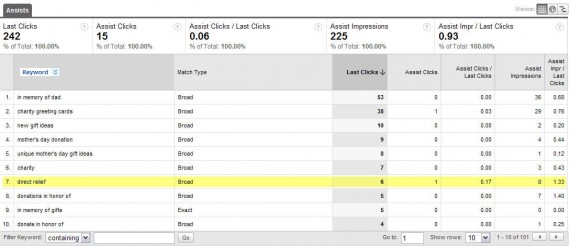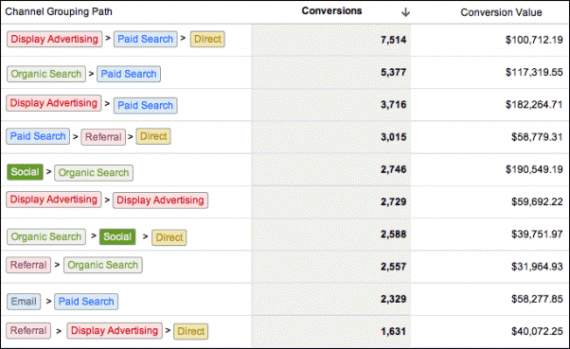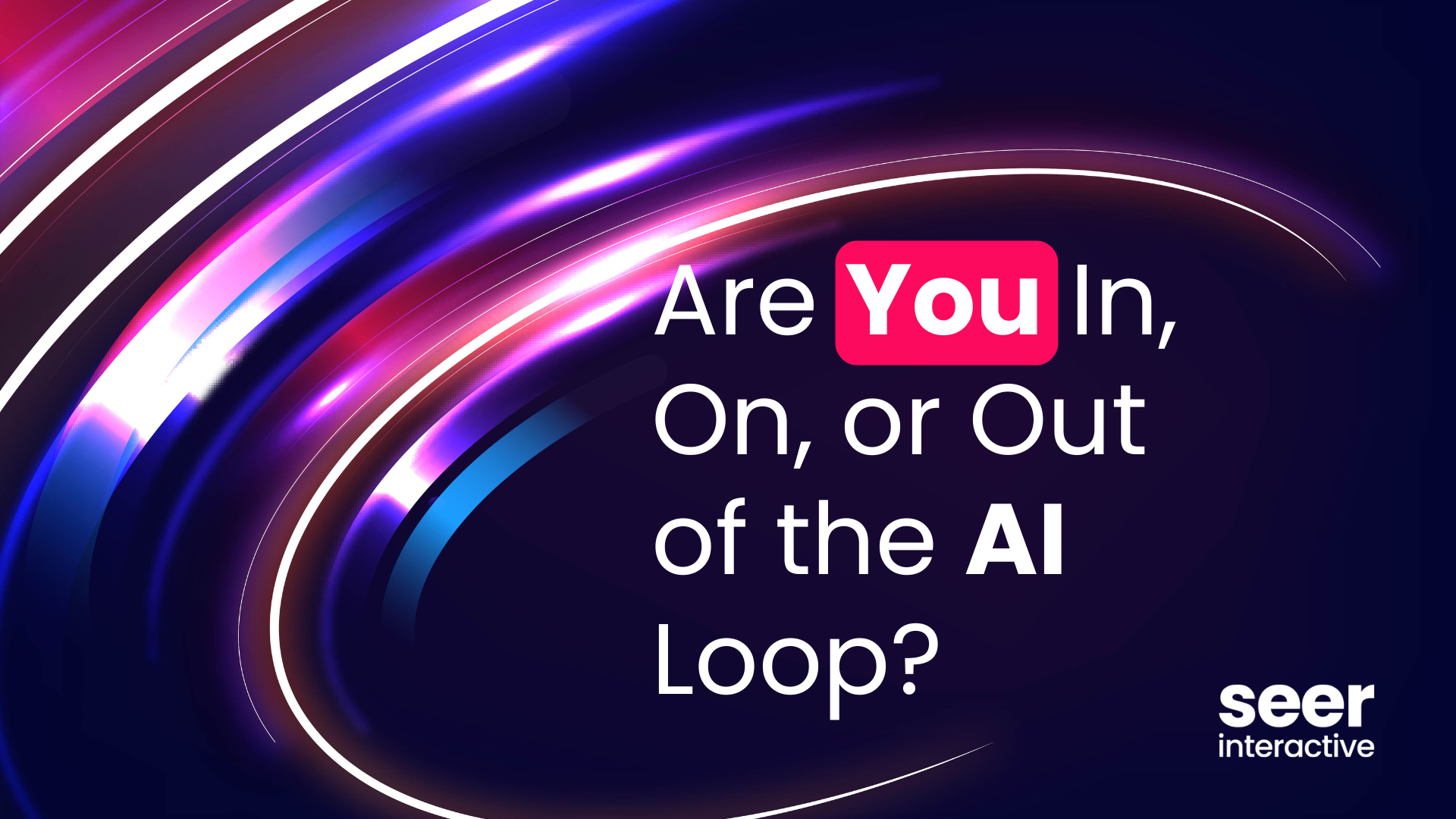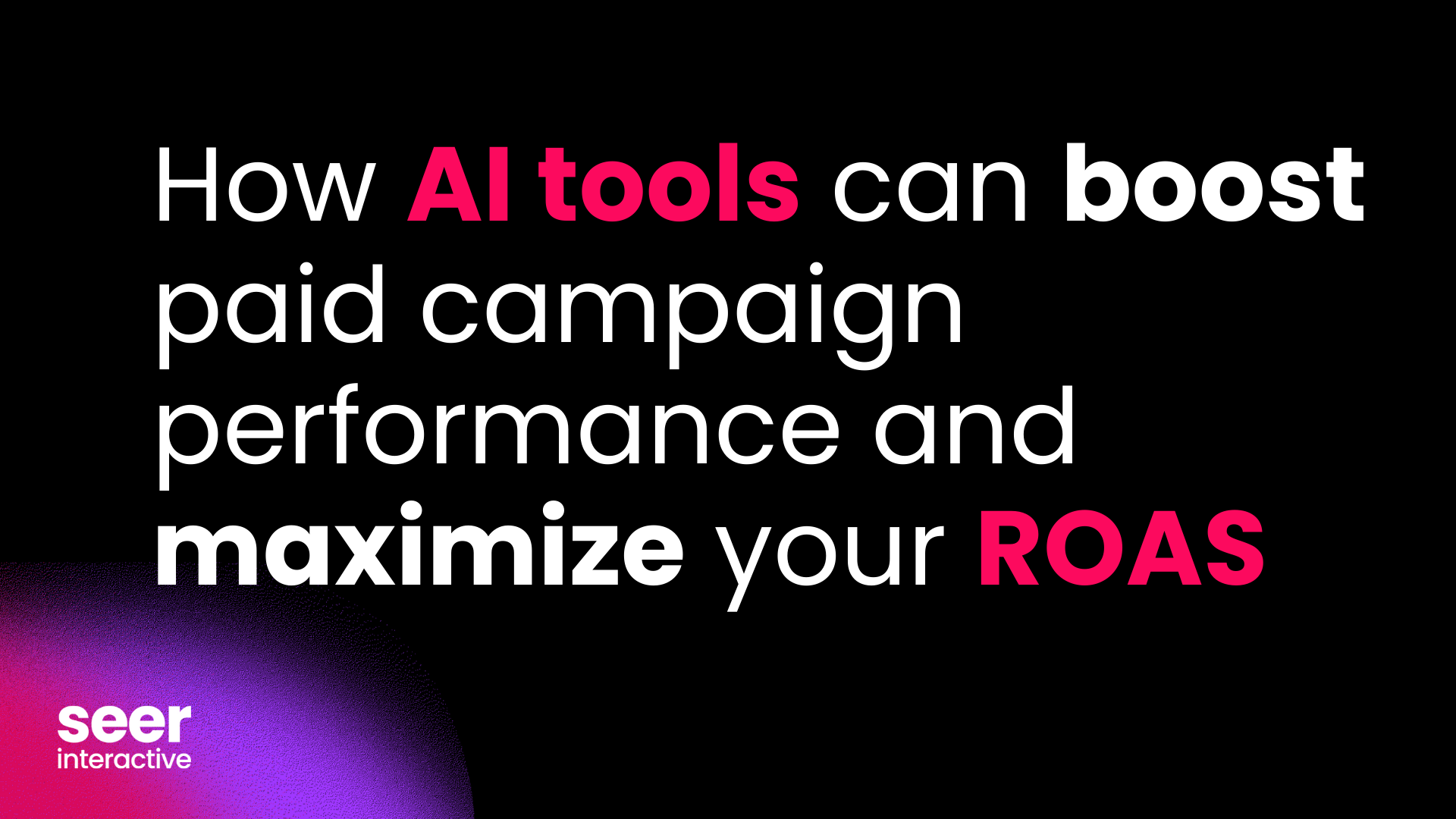Multi-channel funnels (MCF's) are a Google Analytics (GA) feature which gives more insight into conversions where the user visited a website via multiple channels (PPC, organic, direct, etc). PPC Hero wrote a great article guiding users through MCF. After analyzing some features along with Aaron Levy, Michelle Noonan and Rachael Gerson, there are some great applications of MCF's for PPC and some things to avoid. Here are some recommendations on how to use (and how not to use) MCF for PPC.
Time Lag Reports
MCF time lag reports can be great for figuring out how to long to remarket to people for. If time lag reports show that 98% of visitors will convert within 5 days, why set your remarketing cookie to target people on day 6? If they were willing to convert, they probably would've converted by day five. Use MCF path length reports to figure out how long you should remarket to people. The same logic can also be applied to how long you show remarketing via 3rd party banners or other sources.
Recommendation #1 - Use time lag reports to set remarketing time windows.
Multi-Channel Attribution
AdWords & adCenter cookies track on the PPC visitor's browser. If a PPC visitor returns later by another channel, AdWords & adCenter will still record a conversion in their respective PPC interfaces because the user's browser is cookied for AdWords and adCenter. Adding more tracking cookies (like for example if someone got sent a follow up email with tracking after clicking on a PPC ad, or saw a banner ad after clicking on a PPC ad) doesn't disable the original AdWords or adCenter PPC cookie. Clicking on an SEO listing or directly typing in the URL doesn't remove the AdWords or adCenter cookie either. Any data in MCF about that later conversion is redundant; we're already counting that via AdWords and adCenter codes. If we're using the AdWords or adCenter codes to track and we add a conversion recorded in MCF's that started with PPC but ended with SEO, we'd be double counting.
If you're using GA to track conversions via utm_ parameters or auto-tagging, those cookies won't be removed in the regular GA interface because someone came back via direct traffic. However, the GA cookie will remove organic, email, etc (only direct doesn't get overridden by the last visit). Using last channel attribution via conversion path reports is only useful if you're using GA, not AdWords or adCenter codes, to track PPC. This is one reason why regular GA data and GA multi-channel funnels don't match. The second has to do with sampled data which we will get to later. Recommendation #2 - Don't add last click conversions which occurred via SEO, direct or another channel into your PPC numbers if you're tracking PPC with AdWords or AdCenter codes.
Assisted Clicks and Impressions
If you're using AdWords or adCenter codes, MCF's may not be helpful for multi-channel attribution because AdWords and adCenter cookies aren't removed or broken when someone returns via another source. However, if someone clicks on multiple PPC ads AdWords counts the last click as a conversion. In this situation, looking at the sequence of multiple PPC clicks is useful. AdWords already has search funnels and I haven't found a reason to use MCF's in GA for AdWords. However, assisted clicks and impressions can be useful for adCenter or any second tier search engine, as adCenter and most second tier engines don't have a search funnel feature.
Recommendation #3 - Look at assist clicks and impressions for GA MCF for adCenter and second tier engines. To analyze AdWords, use AdWords search funnels rather than GA MCF's.
Reporting
MCF's use sampled data. Sampling in Google Analytics or in any web analytics software refers to the practice of selecting a subset of data from your website traffic to make predictions about overall traffic. Sampled data is just an estimate, it might not be good to use in reports. If MCF's show that lots of people who come to a site via SEO later return as direct visitors and convert, that is useful data which can be used to build a business case for ongoing investment in SEO.
Some have hypothesized that Google created MCF's only to explain why GA data didn't match AdWords data. They might have a point.
Recommendation #4 - Don't use MCF data for reports.
Path Reports
In my experience, long conversion paths are common. If you 40 different sequences each of which has 3-8 different PPC keyword visits in the sequence along with 6-10 organic visits (all for different keywords) and possibly more, it's hard to optimize all of it. Also, if low volume keywords are involved, you won't have enough data for statistical reliability. Path length reports can be useful for determining if channels are important to the conversion path, but deeper analysis can become practically difficult to implement.
Recommendation #5 - Stay at the basic channel grouping level for path reports.
What other recommendations do you have for MCF's?
